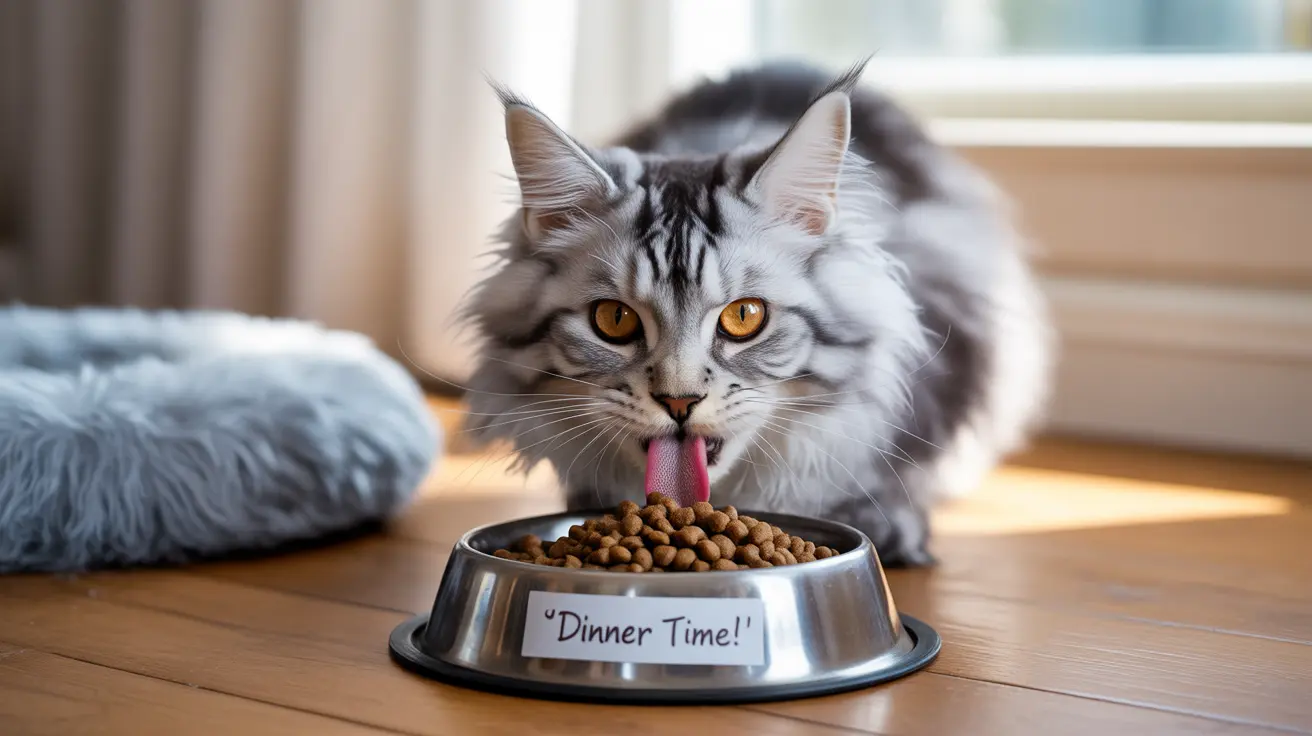If you've noticed your feline friend's appetite has suddenly increased, you're not alone. Many cat owners experience this concerning change in their pets' eating habits. A sudden increase in appetite, known medically as polyphagia, can signal various underlying issues ranging from simple behavioral changes to serious medical conditions.
Understanding why your cat is eating more than usual requires careful observation of their overall health and behavior. Let's explore the potential causes and when you should seek veterinary attention.
Medical Conditions That Increase Appetite
Hyperthyroidism in Cats
Hyperthyroidism is one of the most common causes of increased appetite in older cats. This condition occurs when the thyroid gland produces excess hormones, leading to an accelerated metabolism. Affected cats typically show increased hunger while paradoxically losing weight, along with other symptoms like hyperactivity and excessive thirst.
Diabetes Mellitus
Feline diabetes can cause intense hunger as the body struggles to convert food into energy. Despite eating more, diabetic cats often lose weight because their cells can't properly utilize glucose. Additional signs include increased thirst, frequent urination, and lethargy.
Intestinal Parasites and Malabsorption
Intestinal worms and other parasites can cause increased appetite as they steal nutrients from your cat's food. Similarly, conditions affecting nutrient absorption, such as inflammatory bowel disease or pancreatic insufficiency, may cause your cat to eat more while failing to maintain weight.
Behavioral and Environmental Factors
Stress and Anxiety
Changes in your cat's environment, such as moving homes, introducing new pets, or altering routines, can trigger stress-related overeating. Some cats use food as a comfort mechanism when feeling anxious or insecure.
Boredom and Lack of Stimulation
Indoor cats, especially those left alone for long periods, may eat excessively out of boredom. This behavior can be addressed through increased environmental enrichment and interactive playtime.
Dietary Considerations
Food Quality and Type
Low-quality cat food may lack essential nutrients, causing your cat to eat more to meet their nutritional needs. Additionally, cats on primarily dry food diets may eat more frequently due to the food's lower moisture content and higher carbohydrate levels.
Recent Diet Changes
Switching to a new food brand or type can affect your cat's eating patterns. Some cats may overeat if they find their new food particularly palatable or if it's less filling than their previous diet.
When to Seek Veterinary Care
Contact your veterinarian if your cat's increased appetite is accompanied by:
- Weight loss despite eating more
- Changes in water consumption or urination
- Vomiting or diarrhea
- Behavioral changes
- Lethargy or decreased activity
- Poor coat condition
Frequently Asked Questions
Why is my cat suddenly eating so much and still losing weight?
Weight loss despite increased appetite often indicates serious medical conditions like hyperthyroidism or diabetes. This combination of symptoms requires immediate veterinary attention for proper diagnosis and treatment.
Could my cat's increased appetite be a sign of diabetes or hyperthyroidism?
Yes, both conditions commonly cause increased appetite. These endocrine disorders typically affect middle-aged to senior cats and require blood tests for diagnosis. Early detection and treatment are crucial for managing these conditions effectively.
What behavioral reasons might cause my cat to eat more than usual suddenly?
Cats may eat more due to stress, anxiety, boredom, or changes in their environment. Recent moves, new family members, or changes in routine can trigger stress-related overeating. Providing environmental enrichment and maintaining consistent routines can help address these behavioral causes.
How can intestinal parasites affect my cat's hunger and appetite?
Intestinal parasites compete for nutrients from your cat's food, leading to increased hunger. Affected cats may show symptoms like bloating, diarrhea, or visible worms in their stool. Regular deworming and veterinary check-ups can prevent and treat parasite infections.
When should I take my cat to the vet for sudden changes in eating habits?
Consult a veterinarian if your cat's increased appetite persists for more than a few days, especially if accompanied by weight loss, changes in thirst or urination, vomiting, diarrhea, or behavioral changes. Early intervention can prevent the progression of underlying health issues.






